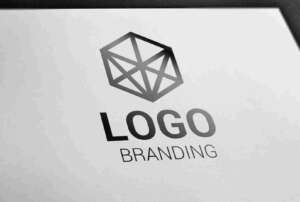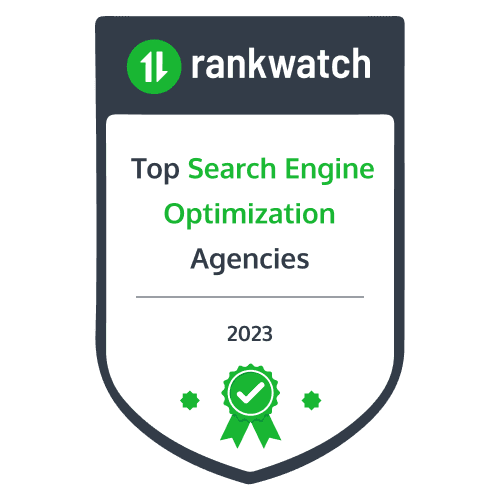Starting a marketing agency can be an incredibly rewarding and fulfilling endeavor. It allows you to turn your passion for marketing into a thriving business while helping other businesses achieve their goals. But why should you start a marketing agency in the first place?
One of the key benefits of starting a marketing agency is the freedom and flexibility it offers. You can choose the clients you want to work with, the projects you want to take on, and the strategies you want to implement. This level of control allows you to shape your agency in line with your vision and values.
Another advantage is the potential for financial success. Your agency’s reputation will grow as you build a strong client base and deliver exceptional results. This can lead to increased demand for your services and the ability to charge higher rates. A marketing agency can be profitable with the right strategies and a solid business plan.
Steps to starting a marketing agency
a. Defining your niche
Before diving into the world of marketing agencies, defining your niche is essential. What specific industry or market segment do you want to focus on? By narrowing down your target audience, you can position yourself as an expert in that area and tailor your services to meet their unique needs.
Research the market to identify gaps or opportunities within your chosen niche. This will help you differentiate your agency from competitors and attract clients seeking specialized expertise. You can also develop a deeper understanding of your client’s challenges and provide more effective solutions by specializing.
b. Creating a business plan
A well-crafted business plan is crucial for the success of your marketing agency. It serves as a roadmap, outlining your agency’s goals, strategies, target market, and financial projections. Your business plan should also thoroughly analyze your competition and your unique value proposition.
Consider your agency’s mission and vision and how you plan to achieve them. Define your pricing structure, service offerings, and marketing strategies. A solid business plan will guide you in the early stages and serve as a reference point as your agency grows and evolves.
c. Registering your business
Once you have a clear plan, it’s time to register your marketing agency as a legal entity. Choose an appropriate business structure, such as a sole proprietorship, partnership, or limited liability company (LLC). Consult with a lawyer or accountant to ensure you comply with all legal requirements and understand your tax obligations.
Registering your business also involves obtaining the necessary licenses and permits, depending on your location and services. Research the specific regulations for marketing agencies in your area to ensure you’re operating within the law.
d. Setting up your office and infrastructure
Creating a productive and functional workspace is essential for running a successful marketing agency. Decide whether you want a physical office or prefer a remote working setup. Consider factors such as cost, convenience, and the needs of your team.
Equip your office with the necessary technology and tools. Invest in reliable computers, software, and communication systems. Set up a project management system to streamline workflows and ensure efficient collaboration with your team and clients. A well-organized and efficient infrastructure will enable you to deliver high-quality client services.
e. Building a team


You’ll need a talented professional team to scale your marketing agency and handle larger projects. Seek individuals who complement your skills and share your passion for marketing. Look for team members with expertise in different areas, such as graphic design, content creation, social media management, and SEO.
When hiring, consider both technical skills and cultural fit. Look for individuals who are motivated, proactive, and have a growth mindset. Building a strong team is vital for the success and growth of your agency.
Developing your agency’s brand and identity
a. Creating a compelling mission and vision statement
A strong mission and vision statement provide a clear direction for your marketing agency and help build a strong brand identity. Your mission statement should articulate your agency’s purpose and core values, while your vision statement outlines your long-term goals and aspirations.
Craft a mission and vision statement that resonates with your target audience and communicates the unique value your agency brings. These statements will guide your decision-making process and shape your agency’s culture.
b. Designing a memorable logo and brand guidelines


A visually appealing and memorable logo is crucial to your agency’s brand identity. Invest in professional graphic design to create a logo that reflects your agency’s personality and resonates with your target audience. Consider colors, typography, and symbols that convey the essence of your brand.
In addition to your logo, develop brand guidelines that outline the visual elements and tone of voice to be used consistently across all marketing materials. This ensures a cohesive and recognizable brand identity, enhancing your agency’s professionalism and credibility.
c. Building a professional website
In today’s digital age, a professional website is essential for any marketing agency. Your website is a virtual storefront showcasing your services, portfolio, and client testimonials. Design a user-friendly and visually appealing website that reflects your agency’s brand and provides a seamless browsing experience.
Optimize your website for search engines to improve online visibility and attract organic traffic. Incorporate relevant keywords, create informative and engaging content, and ensure your website is mobile-friendly. Regularly update your website with fresh content to demonstrate your expertise and engage visitors.
d. Establishing a strong online presence
Building a robust online presence goes beyond having a website. Leverage social media platforms to connect with your target audience, share valuable content, and build brand awareness. Identify the platforms where your target audience is most active and develop a content strategy that aligns with their preferences.
Engage with your audience by responding to comments and messages and participating in relevant industry discussions. Consider creating educational resources, such as blog posts, videos, or podcasts, to establish yourself as a thought leader in your niche. An active and engaged online presence will help attract potential clients and build credibility for your agency.
Building a client base
a. Identifying your target audience


Clearly defining your target audience is essential to attract the right clients for your marketing agency. Conduct market research to understand their needs, pain points, and preferences. Identify their demographics, psychographics, and purchasing behavior.
This deep understanding of your target audience will allow you to tailor your marketing strategies and messages to resonate with them. It will also help you identify the most effective channels for reaching and engaging with your ideal clients.
b. Creating a marketing strategy
Developing a comprehensive marketing strategy is essential for attracting clients to your agency. Consider online and offline marketing tactics aligning with your target audience and budget. Some effective strategies include content marketing, social media advertising, email marketing, search engine optimization (SEO), and attending industry events.
Craft compelling and persuasive marketing messages highlighting your agency’s unique value. Showcase your expertise and success stories through case studies, testimonials, and client reviews. Continually monitor and analyze the effectiveness of your marketing efforts to optimize your strategies and achieve the best results.
c. Networking and building connections
Building a strong network of industry connections is crucial for the growth of your marketing agency. Attend industry conferences, seminars, and networking events to meet potential clients and collaborators. Join professional associations or online communities to connect with like-minded professionals and stay updated on industry trends.
Actively seek opportunities to collaborate with complementary businesses or professionals. Partnering with web designers, copywriters, or PR agencies can broaden your service offerings and help you attract clients who need comprehensive marketing solutions.
d. Generating leads and converting them into clients
Lead generation is a vital aspect of growing your client base. Implement lead generation strategies such as creating gated content, offering free consultations or assessments, or hosting webinars or workshops. Develop landing pages that capture leads’ contact information in exchange for valuable resources.
Once you have leads, focus on nurturing those relationships. Personalize your communication, provide valuable insights, and address their pain points. Show them how your agency can help solve their marketing challenges and achieve their goals. Building trust and establishing rapport will increase the likelihood of converting leads into long-term clients.
Delivering exceptional services
a. Crafting effective marketing campaigns
Crafting effective marketing campaigns is at the core of what a marketing agency does. Develop comprehensive campaigns that align with your client’s goals and target audience. Conduct thorough research to understand their industry, competition, and target market.
Utilize marketing channels and strategies, such as social media, content marketing, email marketing, paid advertising, and influencer marketing. Tailor each campaign to your client’s specific needs and preferences, ensuring the messaging, design, and tactics are compelling and engaging.
b. Implementing digital marketing strategies
The digital landscape continuously evolves, and a marketing agency must stay updated with the latest trends and strategies. Stay ahead of the curve by implementing digital marketing strategies like search engine optimization (SEO), pay-per-click (PPC) advertising, social media marketing, and email marketing.
Regularly evaluate and optimize your digital marketing efforts based on data and analytics. Monitor key performance indicators (KPIs), such as website traffic, conversion rates, and engagement metrics. Use this data to identify areas for improvement and make data-driven decisions to maximize your client’s return on investment (ROI).
c. Providing value-added services


Consider offering value-added services beyond traditional marketing strategies to differentiate your marketing agency from competitors. For example, you could provide in-depth market research, competitor analysis, or customer persona development. These additional services can help clients better understand their target market and make more informed business decisions.
Another valuable service is ongoing marketing consultation and support. Offer regular meetings or check-ins to provide guidance, assess performance, and identify new opportunities for your clients. Building strong relationships and becoming a trusted advisor will contribute to your agency’s success and client retention.
d. Measuring and analyzing results
Measuring and analyzing the results of your marketing campaigns is crucial to ensure you’re delivering exceptional services and achieving your client’s goals. Track key metrics such as website traffic, conversion rates, engagement, and return on investment (ROI).
Use analytics tools to gather data and generate reports that provide insights into the effectiveness of your strategies. Regularly review these reports with your clients to demonstrate your value and identify improvement areas. Continuously evaluating and optimizing your campaigns will help you stay ahead of the competition and drive better results for your clients.
Scaling and growing your agency
a. Hiring and managing employees
As your marketing agency grows, you’ll need to hire and manage a team of talented professionals. Clearly define the roles and responsibilities of each team member and ensure they align with your agency’s goals and values. Establish effective communication channels and workflows to foster collaboration and productivity.
Invest in professional development and training opportunities for your team to enhance their skills and knowledge. Provide regular feedback and recognition to motivate and retain your employees. Building a strong team culture and investing in your employees’ growth will contribute to the long-term success of your agency.
b. Expanding your service offerings
Consider expanding your service offerings beyond traditional marketing strategies to scale your marketing agency. Stay updated on industry trends and emerging technologies to identify new opportunities. For example, you could offer specialized services in influencer marketing, chatbot development, or marketing automation.
Conduct market research to understand the demand for these services and ensure they align with your agency’s expertise. Expand strategically, focusing on services that complement your existing offerings and cater to the evolving needs of your clients.
c. Building strategic partnerships


Building strategic partnerships can be a valuable growth strategy for your marketing agency. Collaborate with complementary businesses or professionals to offer comprehensive solutions to your clients. For example, you could partner with a web design agency to provide integrated website development and marketing services.
Strategic partnerships can also help you reach new audiences and expand your network. Look for opportunities to collaborate on joint marketing campaigns or co-host events. Building strong relationships based on trust and shared values will enable you to tap into new markets and grow your client base.
d. Increasing your client base
Continuously focus on attracting new clients to fuel the growth of your marketing agency. Implement lead generation strategies like content marketing, search engine optimization (SEO), and social media advertising. Develop targeted marketing campaigns that resonate with your ideal clients and highlight your agency’s unique value proposition.
Utilize the power of referrals by providing exceptional services and building strong relationships with your existing clients. Ask for referrals and create programs incentivizing your clients to recommend your agency to their network. A steady stream of referrals can significantly contribute to the growth of your client base.
Overcoming challenges and staying ahead
a. Dealing with competition
Competition is inevitable in marketing, but you can stand out with the right strategies. Differentiate your agency by clearly communicating your unique value proposition and the benefits clients can expect from working with you. Showcase your expertise through case studies, client testimonials, and thought leadership content.
Continuously monitor your competitors to stay informed about their strategies and offerings. Identify gaps in the market and areas where you can excel. Focus on delivering exceptional services and building strong relationships with your clients to create a loyal customer base that sets you apart from the competition.
b. Adapting to industry trends and changes
The marketing industry constantly evolves, driven by emerging technologies and changing consumer behaviors. To stay ahead, you must adapt to these trends and changes. Stay informed about the latest industry news, attend conferences and webinars, and participate in online communities to stay updated on the latest trends and best practices.
Invest in continuous learning and professional development for yourself and your team. Encourage experimentation and innovation to discover new strategies and tactics to give your agency a competitive edge. Embrace change as an opportunity for growth and improvement.
d. Continuously learning and improving


In the fast-paced marketing world, continuous learning is essential to stay relevant and provide exceptional services. Develop a learning culture within your agency, encouraging your team to pursue professional development opportunities and stay updated on industry trends.
Invest in educational resources such as online courses, workshops, and industry certifications. Attend conferences and seminars to learn from industry experts and network with other professionals. Encourage knowledge sharing within your team to foster a culture of growth and improvement.
d. Innovating and staying creative
Innovation and creativity are the driving forces behind successful marketing campaigns. Encourage a culture of innovation within your agency by fostering a collaborative and supportive environment. Allow your team members to think outside the box, experiment with new ideas, and take calculated risks. Foster a culture that celebrates creativity and rewards innovative thinking. By continuously pushing the boundaries and thinking creatively, you can deliver outstanding results for your clients.
Resources and tools for marketing agencies
a. Project management tools
Efficient project management is crucial for the smooth operation of your marketing agency. Utilize project management tools such as Trello, Asana, or Monday.com to streamline collaboration, track deadlines, and manage tasks efficiently. These tools provide a centralized platform for your team to communicate, share files, and monitor project progress, ensuring everyone is on the same page and projects are completed on time.
b. Social media management platforms
Managing multiple social media accounts can be time-consuming. Utilize social media management platforms like Hootsuite, Buffer, or Sprout Social to schedule posts, monitor engagement, and analyze social media performance. These platforms allow you to manage your social media presence efficiently, engage with your audience, and measure the effectiveness of your social media efforts.
c. Analytics and reporting tools
Analytics and reporting tools are essential for measuring the success of your marketing campaigns. Utilize tools like Google Analytics, SEMrush, or Moz to track website traffic, keyword rankings, and other key performance metrics. These tools provide valuable insights that can help you make data-driven decisions, optimize your marketing strategies, and showcase the impact of your efforts to your clients.
d. Collaboration and communication tools


Effective collaboration and communication are crucial for a successful marketing agency. Utilize collaboration and communication tools such as Slack, Microsoft Teams, or Google Workspace to facilitate seamless communication and collaboration among your team members. These tools allow for real-time messaging, file sharing, and project collaboration, ensuring everyone is aligned and working efficiently.
Conclusion


Building a successful marketing agency requires dedication, strategic planning, and a passion for helping businesses grow. Following the step-by-step guide outlined in this article, you can empower your passion and establish a thriving marketing agency. Remember to define your niche, develop a strong brand identity, build a client base, deliver exceptional services, and continuously adapt and innovate. With perseverance and a commitment to excellence, you can create a marketing agency that brings you personal fulfillment and achieves remarkable success in the industry.




We hope you’re enjoying reading our blogs… Don’t forget to secure your browsing experience with Nord VPN. Click the banner below to learn more
More To Explore
Redefining Digital Marketing in 2024: 10 Game-Changing Trends
In the ever-evolving world of digital marketing, staying ahead of the curve is essential. As we approach 2024, it’s crucial to be aware of the
SEO Mania-7 Proven Strategies for Explosive SEO Growth in 2024
Understanding the Importance of SEO in 2024 In the ever-evolving world of SEO, staying ahead of the curve is crucial to your online success. As